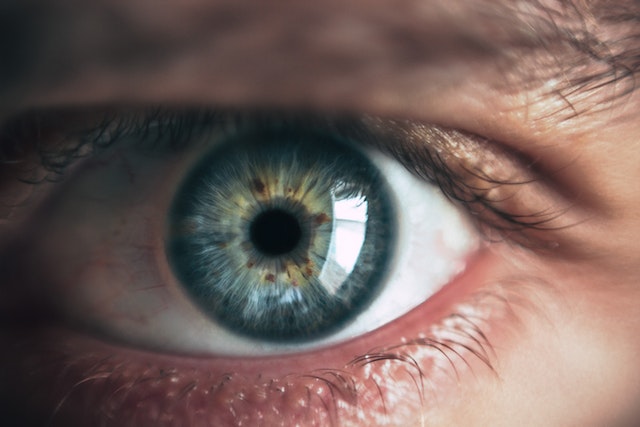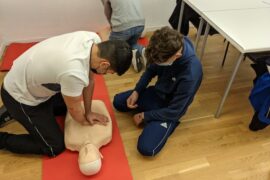Globally, around 2.2 billion people have vision impairment, according to the World Health Organization (WHO). Our eyesight deteriorates as we age. As our bodies age, the lenses of our eyes become less elastic. This causes the eye to have trouble focusing on objects at different distances. Of course, this problem isn’t limited to just old people.
Vision loss can be caused by cataracts, glaucoma, diabetes mellitus, high cholesterol levels, and many other diseases.
Now that you know what causes our eyesight to get worse, it’s time to learn what you can do if that happens.
1. Consult A Doctor
If you feel like your eyesight is getting worse, it’s important to consult a doctor. Whether you notice that your vision is blurry, or you experience sudden sharp stabbing pain in your eye, these symptoms should not be ignored. Even if it’s a minor issue, it’s always better to get it checked out.
The first thing you should do is visit the eye doctor and have them look at your eyes. The doctor will ask you questions about your vision and determine if any problems need to be addressed.
In some cases, the doctor may prescribe glasses or contact lenses to help improve or maintain your vision. You should also bring in a copy of your prescription for the glasses or contacts so that you can show it to the optometrist when you get them.
You may also want to consider getting an eye exam every year, even if you don’t think anything is wrong with your vision. This can help keep track of any changes in how well your eyes work and allow the doctor to catch any issues early on before they become more serious.
2. Get Eye Glasses
If your eyesight is getting worse, the first thing you should do is visit your doctor. They can prescribe glasses or contacts that will help you see better. If they don’t think you need glasses, they will refer you to an eye specialist who can give you a more in-depth evaluation.
After the eye exam and evaluation, you should visit an eye glass store to get the required prescription eyeglasses. The eye doctor will suggest specific types of glasses or contact lenses depending on your eye health. The store can then help you find the right eyewear as they offer a variety of frames and glass styles.
3. Change Your Diet
Studies have shown that a diet rich in dark leafy greens and whole grains can help improve vision, while eating foods high in sugar and saturated fat can make it worse.
It means cutting back on processed foods and increasing your intake of fresh fruits and vegetables (particularly dark leafy greens). It also means eating more fish, nuts, seeds, and legumes, all of which are good sources of omega-3 fatty acids.
Omega-3s are anti-inflammatory nutrients that can help prevent damage to your optic nerve (which connects the retina to the brain) as well as macular degeneration, which is the leading cause of blindness in people over 50 years old.
4. Stop Smoking And Alcohol Consumption
If you feel like your eyesight is getting worse, it may be time to stop smoking and alcohol consumption. Cigarette smoke contains carbon monoxide, which can reduce the amount of oxygen that reaches the retina.
According to data from the WHO, over eight million people die worldwide because of tobacco. Smoking alone contributes to a great deal of this loss. Death isn’t the only thing you have to worry about if you’re a smoker. You’re also risking your eyesight and vision.
Alcohol consumption also has an effect on your eyes. It causes dehydration, which can cause dry eyes and corneal ulcers.
5. Wear Your Glasses Or Lenses Regularly And Get Regular Eye Tests
It’s important to continue wearing your glasses or lenses even if you think they’re getting in the way or making it harder for you to see. The only way to make sure that your vision stays stable is by wearing them regularly.
Your optometrist will be able to tell you whether or not it’s time for a new prescription, but generally speaking, you should have an eye exam every two years.
Our eyesight will not remain perfect forever. According to the National Eye Institute, four out of ten American adults are at risk of losing their vision. However, following these tips will help ensure that your vision stays somewhat perfect, even if it means getting vision-correction glasses or lenses.


































